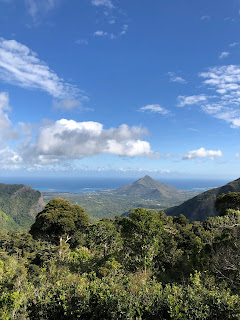Mother tongue
When did you start birding? For me, it was when I was very little. I used to sit with my grandad flicking through the bird book and while I was yet to be able to read the descriptions, I could identify most British birds by the age of 4. My birding education was chiefly visual - I couldn't read let alone understand the meaning of a scapular. For some of you, this will sound very familiar, for others maybe you got into birding later on.
In this way, there's a huge range of birding backgrounds, which gives rise to an interesting phenomenon that I've only recently started to notice.
As birders, when we look at a photo of a Western Sandpiper, lots of thoughts go through our head to try and establish why it is not a Little Stint or a Semipalmated Sandpiper. And when I'm with other birders, I've noticed a lot of the time these thoughts are very technical - half-webbed toes, the markings on the scapulars, the bill length etc. Whereas my response is sometimes "well it just looks right". Indeed, this was my reaction to the recent Hampshire bird. I've realised that while technically I've been birding for longer than a lot of birders who started later on, I'm behind in the finer points of ID.
 |
| Blyth's Reed Warbler is an example of a tricky bird to judge off of gut feeling alone |
There's an interesting analogy here, I think, to learning a language.
You get people who have been exposed to the language from an early age, it's their 'mother tongue', and people who have become fluent later on in life. Language is interesting in that we have a period when we're younger where we can simply pick it up, if exposed to it for long enough. Often, the speaker of their 'mother tongue' (while just as fluent as the other person) doesn't actually think about the finer grammatical points or the reasons for what they're saying - it just looks right or wrong to them!
How many times have you carefully thought before saying the phrase "if I were rich" in English and concluded that it's correct because you have rightly used the subjunctive? Probably not very often. But if you were speaking it in French maybe you would. Very often, foreign language speakers from birth, despite being fluent, find exams like A Levels in that language very hard because they have never thought to learn the reasons for what they do.
And in just the same way I believe there are two types of birding background and everyone finds themselves somewhere in between them. The mother tongue birders and the self-taught fluent birders.
And what this means for my birding is that, when presented with a problematic species, and a healthy bit of debate on Twitter some of the time the most I can bring to the table is a strong gut feeling! And while that's great for ID'ing in the field, it's not so good for convincing others why you're right. It would be a risky game for me to engage in an ID discussion with someone who learnt birding at the age of 20, for example.
I think this is why Gull ID doesn't come naturally to me. Sure, a gut feeling goes a long way but the long and complex reasons for some of the more borderline individuals are outside my comfort zone.
 |
| Pacific Golden Plover - though sometimes obvious, problematic birds can require very complex ID features like the recent bird on Lindisfarne |



Comments
Post a Comment